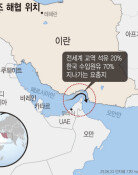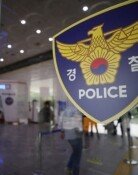[Editorial] Significance of SOFA
[Editorial] Significance of SOFA
Posted July. 15, 2000 09:19,
It is truly abominable to think that any individual or organization would allow an unleashing of potentially life-threatening toxic waste unto a water system such as Han River. To think it was the U.S. Forces Korea which perpetrated such an act sends shivers down the spine. One cannot but ask whether such incident would ever be possible within the U.S. borders. While the spokesperson for the U.S. Armed Forces in Korea has announced the adoption of a preventive measure against recurrence of such toxic waste dumping and expressed their regret, it should not serve to bring the matter to a close.
The USFK must further specify the details of their preventive follow-up measure as well as explain the discrepancy in the reported amount of toxic waste released with that alleged by an environmental watchdog, Green Korea United (GKU). The USFK must further come clean and disclose of its knowledge of any other such toxic waste dumping incidents at army bases around the peninsula. As for those responsible through action or knowledge, justice must be swift and sure.
Coming on the tail of such environmental distrust, the issue of primary and secondary environmental pollution caused by the presence of the U.S. Armed Forces will likely be a contentious one during the revision of Status of Force Agreement talk which is just around the corner. Korean negotiators must not give ground in pushing for an insertion of environmental protection and responsibility clause into the SOFA and install a comprehensive systemic preventive mechanism to expel such barbarous actions from ever recurring.
However, the position hinted by USFK that such measure may not be necessary brings a shadow of worry for those keeping a close watch on the SOFA negotiations. Simply put, USFK has taken a rather stubborn stance by anyone`s standard in calling for a continued observance of the out-dated agreement and only seeks to revise the agreement for its benefit. While Korea seeks a comprehensive meeting of minds for criminal jurisdiction clause as well as the broader issues concerning environmental pollution and labor rights among others, the U.S. seeks to only address the question of legal jurisdiction and custody of suspected criminals belonging to the U.S. Armed Forces in Korea. Judging by their suggested scope for the talks, one can only wonder what the U.S. must think of the Korean jurisdictional sovereignty. While the U.S. has expressed its willingness to agree to the transfer of the suspect to Korean authorities at the time of indictment rather than at the time of conviction, the U.S. is demanding jurisdiction over all misdemeanor cases.
In addition to such invasion of jurisprudence, the U.S. further proposes to make a list of crimes for which Korea may hold jurisdiction over suspects belonging to the USFK, and they propose to retain the right to keep custody when they judge that the suspect`s civil rights have been breached. If such terms were agreed to by the negotiators, it would only cause to make SOFA even more lopsided than before.
The schism in the relationship between the USFK and Korea which has surfaced recently in Mae-hyang-ri among others can be said to have resulted from the lopsidedness of the SOFA. Without drastic changes made to the SOFA, the anti-American sentiment is sure to flare up higher. For the mutual benefit and understanding as we look toward the future shared in harmony by both nations, the U.S. needs to come to the table with understanding and openness befitting its size.





![[단독]“두건 쓴 무장경비대 길목마다 검문…택시로 20시간 달려 탈출”](https://dimg.donga.com/c/138/175/90/1/wps/NEWS/IMAGE/2026/03/05/133470282.1.jpg)

